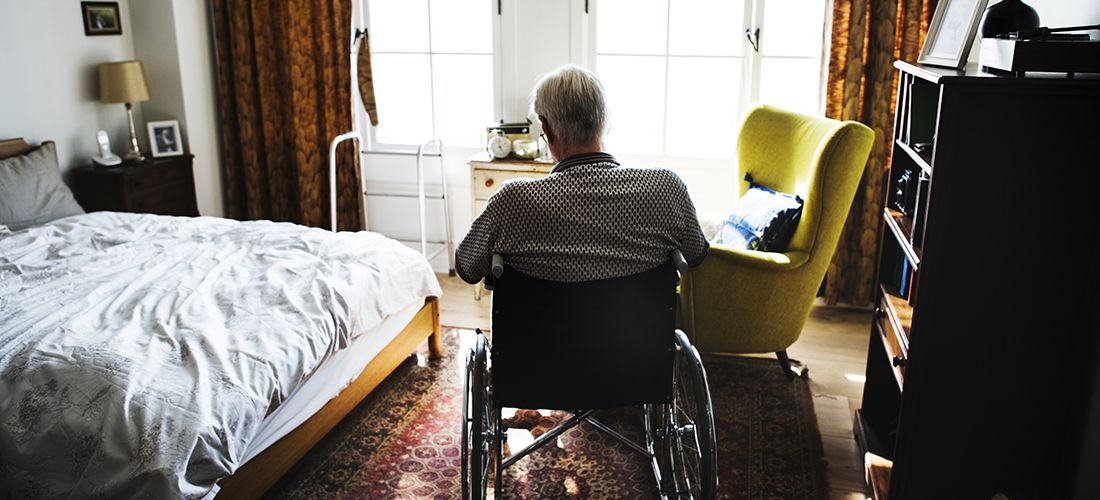Powers of attorney are a key part of an effective estate plan. Having a power of attorney in place can be especially beneficial concerning disabled nursing home residents. While proper powers of attorney can provide some piece of mind about nursing home residents, the COVID-19 outbreak has the opposite impact - it only provokes significant worry and concern about nursing home residents.
The COVID-19 pandemic has been described as “a nightmare for nursing homes, their staffs, residents, and their families.” Unfortunately, power of attorney agents for nursing home residents were confronted with the COVID-19 “nightmare.” This article examines issues involving nursing homes and nursing home residents that power of attorney agents need to consider.
Benefits of powers of attorney
As medical science has made advances that keep people alive for a longer lifespan, death has been deferred, and disability has replaced death for possibly long periods of time for many older Americans. Powers of attorney address disability issues by designating agents to act for disabled principals. When used effectively, powers of attorney can allow for continued necessary decision-making and minimized uncertainty at a low cost (compared to guardianship, conservatorship or other litigation proceedings).
Powers of attorney are particularly beneficial concerning nursing home residents. While many nursing homes provide their residents with excellent care, there are too many incidents of nursing home abuse to ignore the risk of a nursing home resident being victimized by a nursing home. With a power of attorney in place, a nursing home will have to deal with a competent agent and be less able to take advantage of a disabled nursing home resident principal.

The benefits of powers of attorney generally and concerning nursing home residents specifically remain applicable during the COVID-19 outbreak. In addition, COVID-19 issues create certain specific situations in which powers of attorney for nursing home residents can be beneficial. If COVID-19 economic issues cause a disabled nursing home resident's stock portfolio to plummet in value, a power of attorney can enable action to be taken to minimize stock losses. If COVID-19 medical issues cause a disabled nursing home resident to need an experimental drug or treatment, a power of attorney can enable action to be taken to consent to and authorize such health care.
While those examples are important, they generally can apply to all older Americans, and not just to nursing home residents. The area in which powers of attorney can be most specifically applicable to nursing home residents during the COVID-19 outbreak arises from the direct relationship between the nursing home and the nursing home resident, or what can be referred to as nursing home-nursing home resident issues. Power of attorney agents need to contemplate whether they should be intervening in specific nursing home-nursing home resident issues, including the following:
- Given the relative high rate of illness and death from COVID-19 disease in nursing homes, should they remain in the nursing home or move somewhere else?
- Because of the resulting possible mental health issues from living under quarantine, should nursing home residents stay or move?
- With limits on food and supplies being received by nursing home residents, should they stay or move?
- Due to the limits on medical, dental and psychiatric or psychological care being received by nursing home residents, stay or move?
- Generally, if the nursing home resident is to remain in the nursing home, what actions should be taken to improve the care and services provided to the nursing home resident?
Before attempting to address these issues, the power of attorney agent initially must consider whether there is even authority for the agent to intervene in nursing home-nursing home resident issues.
Can a power of attorney intervene?
There are two parts to this question. First, is there even any valid power of attorney in effect? Notwithstanding the benefits of powers of attorney, if there is no valid power of attorney already in place, it may be difficult to execute one today.
The disabled nursing home resident may lack sufficient capacity to execute a valid legal document. In addition, based on quarantining, it may not be feasible to execute a valid power of attorney in accordance with applicable witnessing and/or notarizing requirements. Second, even if there is a valid power of attorney in effect, does it give the agent authority to intervene in nursing home-nursing home resident issues during the COVID-19 outbreak? Powers of attorney come in all shapes and sizes. There are property powers of attorney (concerning financial issues) and health care powers of attorney (concerning medical issues).

Some powers of attorney take effect on execution, while other powers of attorney take effect only after some triggering event occurs, such as disability, based on the language of the power of attorney. This point can be especially significant for nursing home residents, who may have executed powers of attorney and have certain health issues, but have not declined sufficiently in health to be considered disabled to trigger the operation of a power of attorney based on its language. Powers of attorney also vary by state. While the “standard government-approved” language in some states (like Illinois and Arizona) would appear to support intervention in nursing home-nursing home resident issues, other states use different such language that would appear to provide weaker authority for such intervention - in the absence of the principal and the agent adding their own language to the power of attorney document to authorize such intervention.
If the power of attorney agent does have authority to intervene in nursing home-nursing home resident issues, how should the agent do so? Unfortunately, there is no always applicable easy answer, and the best answer is it depends. It depends because every situation will be subject to different facts and circumstances. Power of attorney agents should consider the following:
- It is easy to assert that because of the potential for death and illness in nursing homes, power of attorney agents should remove nursing home residents from nursing homes. The problem is where should they go. It is likely that the nursing home resident is in the nursing home because it previously was deemed a superior alternative to the person living at home or in a family member's home. Is either alternative option now available? Can some form of “at-home care” be afforded? It may be possible to move the person to another nursing home, but there is no guarantee that the COVID-19 “nursing home” risk will be less at another nursing home.
- Does the power of attorney agent have liability for failing to intervene or for intervening incorrectly? Power of attorney agents are considered fiduciaries for various purposes, especially under property powers of attorney. If power of attorney agents breach their fiduciary duties, they certainly can be liable under applicable state law. However, it seems hard to argue that a power of attorney agent should be liable for “nursing home intervention decision-making” during the COVID-19 outbreak. Governments are not ordering the closing of nursing homes; in fact, New York recently required that nursing homes take COVID-19 patients discharged from hospitals. To the extent that nursing homes are not deemed unsafe enough to be required to close, why should agents have liability for keeping their principals in nursing homes? Agents are not required to have perfect “20-20” hindsight. Given all the uncertainty that exists from the relative novelty of the COVID-19 pandemic, an agent, while trying to act in the principal's best interests, making what later turns out to be the wrong decision concerning whether a nursing home resident should have remained in a certain nursing home seems far less likely to constitute a breach of fiduciary duty than, for example, an agent, acting in bad faith and contrary to the principal's best interests, frivolously dissipating the principal's assets.
- Nevertheless, if the power of attorney agent is uncomfortable about potential liability, there are steps than can be taken. You do not have to serve as a power of attorney agent forever. The agent can resign from the position; a properly drafted power of attorney will have successor agents who can then take over the role of agent. It may also be possible for the agent to be released, indemnified, and held harmless by other family members and interested parties in a written document.
- The best decisions are made with knowledge. Quarantining limits the ability of an agent to have the best knowledge about the principal's specific situation in the nursing home. Therefore, regular telephonic and online communications with both the nursing home resident and the nursing home can become crucial during the COVID-19 outbreak for the agent to know as well as possible what is happening with the principal.
- One issue in which power of attorney agents can definitely intervene is advocacy to improve the care and services being provided by the nursing home during the COVID-19 outbreak. Agents should encourage nursing homes to provide the highest level of care and services possible consistent with current COVID-19 requirements. As examples, agents can advocate that nursing homes provide for nursing home visits by outside doctors, dentists and other health personnel, food and supplies deliveries, religious ceremony and entertainment program “streaming” and “behind glass” and FaceTime family visits, all consistent with current COVID-19 restrictions.
It is important to remember that powers of attorney are intended to be beneficial concerning nursing home residents. While the decision to “stay or go” with respect to the nursing home is difficult, the use of a power of attorney for the final point noted above - advocacy to improve resident care and services during the COVID-19 outbreak - can definitely benefit nursing home residents. If a power of attorney is at least used in this manner, it definitely can be valuable to assist nursing home residents during these difficult times.



